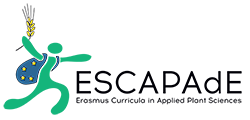English title:
Evolutionary biology and its applications
Course ID:
834311
ECTS credits:
3,0
Title in native language:
Evolutionary biology and its applications (in Eng.)
Evolutionary biology and its applications (in Eng.)
Term Semester:
Spring/Summer
Instruction language(s):
English
Course content:
The class is designed to complement biology related curricula, like limnology, wild life management, animal sciences and other. It covers the principles of evolutionary biology and links these to relevant scientific fields like molecular ecology, conservation genetics, genetic resources and breeding.
The class is organized in two major parts. The first part introduced general evolutionary biology, i. e. covers the development of the theory of Evolution from an historical perspective towards the modern synthesis, the integration of natural selection and genetics and discusses the major forces for adaptation and change with time for populations, selection and genetic drift. It also introduces population genetic principles the basics of theoretical population genetics. The part will end with the discussion of new developments, the ecological synthesis, and looks at evolutionary forces shaping the ecology of species, their distribution and the composition of communities.
The second part will introduce the relevance of evolutionary biology to activities related to resources and conservation. Examples are breeding, selection during resource management for forestry and fishery and other harvesting activities. A special emphasis will be put on the population genetic principles relevant for conservation (conservation genetics) and restoration. Conservation genetics will be used to introduce examples for molecular evolutionary analyses using genotype and genome data
The class is organized in two major parts. The first part introduced general evolutionary biology, i. e. covers the development of the theory of Evolution from an historical perspective towards the modern synthesis, the integration of natural selection and genetics and discusses the major forces for adaptation and change with time for populations, selection and genetic drift. It also introduces population genetic principles the basics of theoretical population genetics. The part will end with the discussion of new developments, the ecological synthesis, and looks at evolutionary forces shaping the ecology of species, their distribution and the composition of communities.
The second part will introduce the relevance of evolutionary biology to activities related to resources and conservation. Examples are breeding, selection during resource management for forestry and fishery and other harvesting activities. A special emphasis will be put on the population genetic principles relevant for conservation (conservation genetics) and restoration. Conservation genetics will be used to introduce examples for molecular evolutionary analyses using genotype and genome data
Learning outcomes:
Basic knowledge about evolutionary biology
Ability to recognize evolutionary biology relevance for applications
Ability to perform basic evolutionary analyses in the context of Conservation genetic
Ability to recognize evolutionary biology relevance for applications
Ability to perform basic evolutionary analyses in the context of Conservation genetic
Exam method:
written
Organisation: University of Natural Resources and Life Sciences Vienna
Country:
Austria
Acronym:
BOKU
ERASMUS+ code:
A WIEN03
Teaching period summer semester:
22. Feb 2021 - 30. Sep 2021
Teaching period winter semester:
13. Oct 2020 - 21. Feb 2021
University website:
